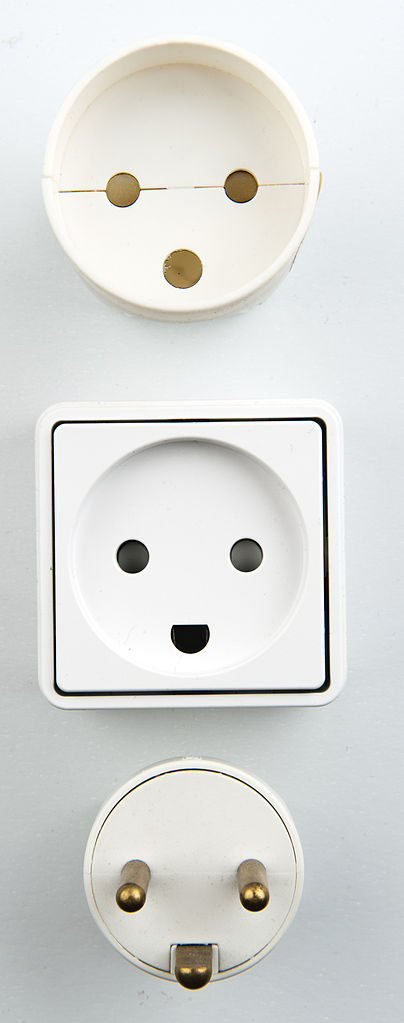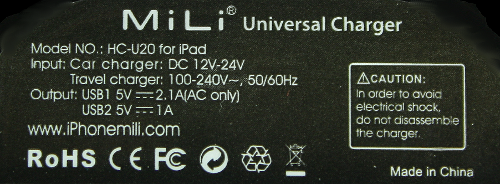Book
Powering a circuit: electricity
Powering a circuit: electricity
Completion requirements
View
Tame electrical waves and currents.
5. AC vs. DC
Apart from the rock legends, AC/DC refers to the two main types of electrical flow, direct current (DC) and alternating current (AC).
You might have noticed in the multimeter symbols, that there are two measurement modes for voltage, one that looks like V~ and one close to V---.
V~ refers to alternating current, which is the type of current we find coming out of a wall socket.
Try to measure the socket voltage in the lab!

It is called alternating current
because the electrical signal alternates above and below the electrical
ground (0V), constantly
fluctuating between a positive and a negative voltage.

The other symbol represents direct current. It is so named
because it travels in a direct line above ground. This type of
electricity consists of a steady positive voltage, set apart from a
ground plane.
DC electricity is the type of current that comes from batteries.
In DC voltage, we refer to ground (-) as the absence of voltage (0V) and to power (+) as the existence of voltage (the steady positive voltage).
"Ground"
Ground really is another convention in electrical circuits. Our breadboard and battery grounds do not really go to the earth's ground and, unless they are connected, two different circuits' grounds maybe be on different voltage levels. So naming a certain level as 0V or ground is arbitrary!
On the other hand though, the AC power system that brings electricity to houses uses the actual ground as ground to close the circuit. This means the electrical cables and pillars only bring the power to us. Shocking?

The reason why AC voltage is used for this is because back then when energy systems were built AC electricity was easier to transmit
over long distances.
AC to DC
As consumer electronics mostly use DC power, we are filled with AC/DC converters, the most common one for you being a smartphone or laptop charger. If you look closely on a charger label, you will see exactly the specification for AC input and DC ouptut.

Safety
Whereas AC is dangerous for the human body, DC is completely safe. However you should still avoid touching the circuits directly with your conductive hands, as you may damage the equipment by making a connection through your body.